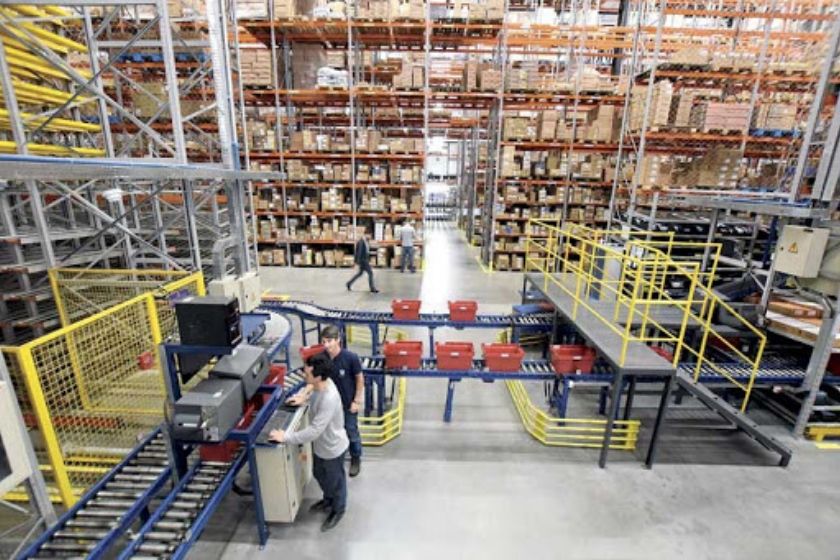6 mistakes you are making in your medication stock and how to solve them
Errors in medication storage and administration in stocks, pharmacies, clinics and hospitals can have very serious consequences for patients, and are often caused by total lack of information. A 2017 study showed what so-called adverse effects are the second most common cause of death in Brazil – every 5 minutes, three people die from errors that could be avoided in hospitals, among them, the inappropriate handling of drugs.
Ensuring that procedures involving medicines are done correctly is essential for the quality of health services in general, and care must be taken at all stages of the chain. In this scenario, the storage of medicines is among the biggest concerns of those responsible for the area. There is all its own legislation regarding special care during drug logistics operations, and it is up to the pharmacist responsible for the quality of the sector to be aware of the rules of Anvisa and other regulatory bodies on the subject, in addition to seeking a constant update on good practices in storage of medicines.
All pharmaceutical products must be stored carefully, and those that are more sensitive, such as biological, high-cost oncology or flammable drugs, call for even more attention. With the adoption of preventive measures and standardization of procedures, it is possible to avoid errors that have negative impacts not only on finances, but also on the lives of patients.
Check out the most common errors:
1. Not having an exclusive place to store medicines
Storage is a very important step in the medication handling process, and not having an exclusive location for this purpose is a very common mistake, especially in pharmacies. To avoid contamination that may have implications for the effect of medicines, it is important that they are in spaces without contact with materials such as cleaning products, perfumery or food.
Nor should you, under any circumstances, share the refrigerator of thermolabile medicines – drugs sensitive to temperature variations – with any type of food (not even a small bottle of water). Likewise, “common” refrigerators, such as the ones we have in our homes, should not be used to store medical products, because in addition to being opened much more often, they do not have the temperature control as strict as an exclusive chamber for medicine.
2. Do not monitor the temperature conditions of the storage location
Okay, we have a place to store the medication… but who guarantees that the ideal temperature to maintain the effectiveness of the drugs is maintained for as long as necessary?
Even when the stock is not only of thermolabile drugs, it is recommended that temperature, humidity and luminosity be controlled. The temperature should be between 15ºC and 30ºC, although the ideal is not to exceed 25º, and the humidity should be between 40% and 70%.
In the case of medicines sensitive to temperature variations, the control must be even more rigorous. There are a series of necessary procedures such as periodic measurement and the installation of systems that contain alerts in case of undue temperature variation.
When temperature measurements are made manually, there is always the possibility of human error. The same can happen when warehouses, pharmacies or laboratories have measuring equipment, but the professionals are not trained to use or do not know how to read the data correctly.
3. Lack of control over access to the medication storage location
Access to medicine storage sites must be restricted and controlled, and the rules must be explicit. Storage locations must be of restricted access and the rules on handling must be explicit and clear. Not taking care of this is a common storage mistake. Important care is taken, such as physical access control, with keys or magnetic cards, ensuring that only authorized employees are able to enter; the prohibition of eating any food in stock; signage of locations with flammable drugs and daily check, by sampling, of high-cost drugs.
4. Carelessness in the handling of products
Inappropriate handling is a very common mistake in stocking medicines. The lack of care when dealing with pharmaceutical products can even make their use unfeasible. Carrying boxes without proper attention can interfere with the physicochemical stability of the drugs. All employees must be trained in the correct handling of packaging, including drivers and helpers.
Medicines presented in multi-dose vials, which will be opened and used more than once, must be kept in their original packaging, which must be closed again after the first use. This avoids losses and contamination. It is also important to indicate the amount of medicine remaining in the box.
With regard to thermolabile, the suggestion is to organize scheduled entries and withdrawals in the stock, thus reducing the temperature variation in the environment. The distribution cycle for medical products is increasingly complex and specialized, and several aspects need to be considered to ensure the perfect functioning of the supply chain.
5. Ignorance of technical standards by staff
As already mentioned, the pharmaceutical sector receives intense inspection by government agencies, and has its own regulations. It is extremely important that the area manager knows and dominates the norms related to the sector, especially those of ANVISA, the authority responsible for monitoring and regulating the performance of the pharmaceutical industries, ensuring the health and safety of consumers. Among the various devices published by ANVISA, we can highlight the Certificate of Good Distribution and / or Storage Practices (CBPDA). In general, all the good practices presented avoid numerous problems and allow your industry to suffer less from losses of products and capital, avoiding losses resulting from poor stock management, without breaking the supply chain and endangering the integrity of consumers. .
6. Inefficient validity control and management
Adopting a strict inventory validity control is essential in the pharmaceutical sector. We are dealing with drugs that will lose their function and quality after the expiration date and, therefore, must be distributed and marketed within the indicated period. The adoption of efficient inventory management strategies helps to control the validity, which can also count on the use of software or specialized companies to deal with logistics operations.

















